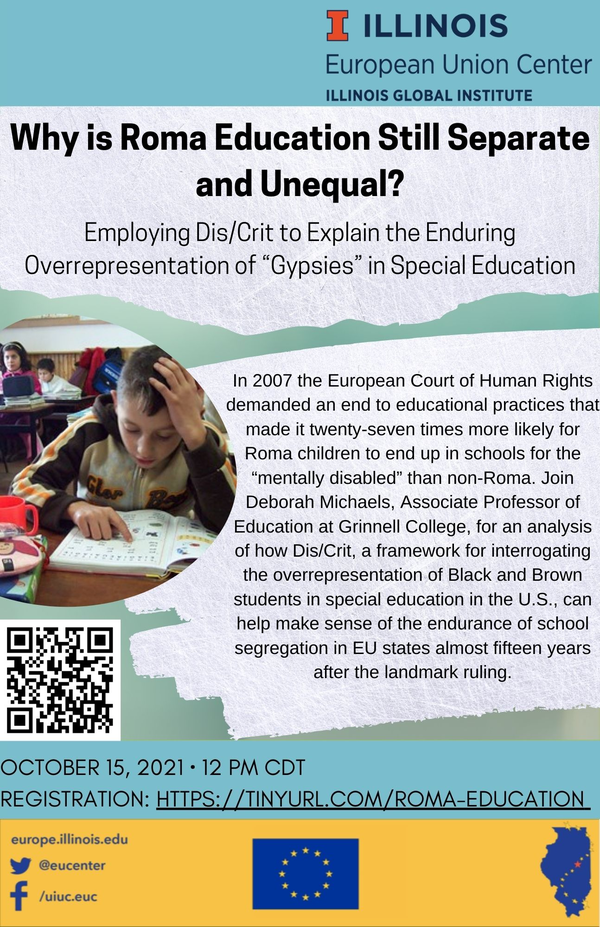Why is Roma Education Still Separate and Unequal? Employing Dis/Crit to Explain the Enduring Overrepresentation of “Gypsies” in Special Education (EUC Fall Brown Bag Lecture Series)

- Sponsor
- European Union Center
- Speaker
- Deborah Michaels
- Registration
- Zoom Registration Link
- eucenter@illinois.edu
- Views
- 196
Join Deborah Michaels, Associate Professor of Education at Grinnell College, for a brown bag talk hosted by the EU Center. This event will be held in a hybrid (in-person + Zoom) format. Registration for the in-person event will be limited to the first 20 registrants. Please register here to attend in person. Please register here to attend via Zoom.
For research guidance, please see the section on Roma education in the Minority Rights in Europe LibGuide: https://guides.library.illinois.edu/c.php?g=1009482&p=8636801.About the talk:
In 2007 the European Court of Human Rights (ECHR) in the case of D.H. and Others v. the Czech Republic demanded an end to educational practices that made it twenty-seven times more likely for Roma (commonly referred to with the misnomer “Gypsies”) to end up in segregated special schools for the “mentally disabled” than non-Roma children (Open Society Justice Initiative, 2021). Similar litigation followed in Hungary, Slovakia, and Romania calling for the dissolution of a two-tiered education system that funneled Roma—the largest ethnic minority in Europe—into low-achieving, low-quality schools (New & Merry, 2010). Although nearly fifteen years have passed since the ECHR landmark ruling, the grossly disproportionate placement of Roma youth in special education schools persists today (European Roma Rights Center, 2019). In this presentation, I argue that Dis/Crit, a theoretical framework that draws on Disability Studies and Critical Race Theory to interrogate the overrepresentation of Black and Brown students in special education in the U.S. context (Conner, Ferri & Annamma, 2016), is highly relevant to understanding the endurance of school segregation in the European context. Drawing on nearly two decades of ethnographic, school-based, and archival research in the Czech and Slovak Republics, I evidence how eugenics discourse, ethnic nationalism, linguistic diversity, and school practices such as IQ testing in these Central European contexts reinforce each other to perpetuate a separate and unequal education for Roma students.